Δ-9-tetrahydrocannabinolic acid (THCA), a non-psychoactive cannabinoid found in Cannabis sativa and the precursor to THC, is legally recognized in Oregon provided its THC content remains below 0.3% on a dry weight basis, aligning with federal hemp guidelines. THCA has gained attention for its potential health benefits, including anti-inflammatory, anti-nausea, anti-anxiety, and neuroprotective effects, which are being studied in Oregon's research community. The state's legislation permits the cultivation and possession of THCA-rich flower, allowing consumers to explore its therapeutic properties without a psychoactive 'high.' Oregon's legal framework distinguishes between hemp-derived and marijuana-derived substances, with specific regulations for each, enabling the market for THCA flowers derived from hemp to flourish. The state's favorable climate and progressive laws have positioned it as a leading producer of high-quality, THCA-rich cannabis flowers, emphasizing sustainable practices and the entourage effect for a balanced therapeutic experience. Research into THCA's potential health benefits is ongoing, reflecting its growing popularity due to its legal status in Oregon and its medicinal properties that offer an alternative to traditional pain management and wellness options.
Explore the intricacies of THCA, the natural precursor to THC, and its transformative journey from plant to potent compound. This article delves into the multifaceted world of THCA flower, shedding light on its legal standing in Oregon, where it has found a niche as a key player in wellness routines. Discover how the unique composition of THCA flower influences its effects and how Oregon’s climate cultivates its growth. Delve into the entourage effect, the medicinal properties backed by current research, and various consumption methods that highlight the versatility of this cannabinoid-rich plant. With a focus on dosing, safety, and extraction processes, learn to harness THCA’s full potential. Navigate the Oregon market for top-quality THCA flower, and stay informed on its evolving legal status across the United States. Whether you’re interested in cooking with THCA flower or preserving its potency, this article equips you with the knowledge to make informed choices.
- Understanding THCA: The Natural Precursor to THC
- THCA Flower: A Closer Look at Its Composition and Effects
- Legal Status of THCA Flower in Oregon: What You Need to Know
- Cultivation of THCA-Rich Flowers: Oregon's Ideal Conditions for Growth
- The Entourage Effect: How THCA Interacts with Other Cannabinoids and Terpenes
- Medicinal Benefits of THCA Flower: A Review of Current Research
Understanding THCA: The Natural Precursor to THC
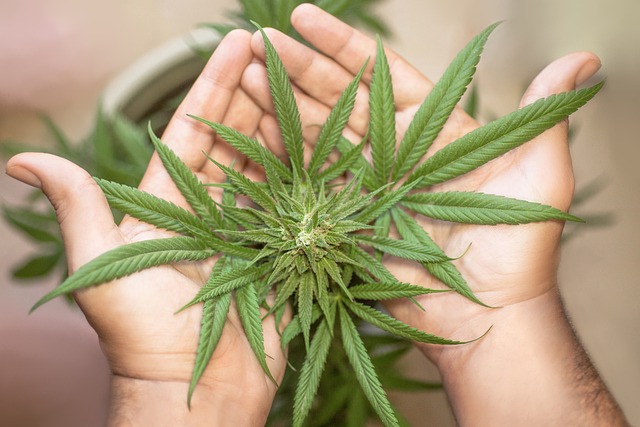
Delta-9-tetrahydrocannabinolic acid (THCA) is a cannabinoid found naturally in the Cannabis sativa plant and serves as the precursor to the well-known psychoactive compound delta-9-tetrahydrocannabinol (THC). As of my knowledge cutoff, THCA is considered legal in Oregon under state laws, provided it contains less than 0.3% THC on a dry weight basis, aligning with the federal definition of hemp. This distinction is crucial for consumers and manufacturers as it differentiates between products that are intoxicating and those that are not, based on their THC content.
THCA exists in raw cannabis plants and does not exhibit psychoactive effects until it is heated or decarboxylated, a process that converts THCA into THC. In its natural state, THCA is being studied for various potential health benefits, including anti-inflammatory, anti-nausea, anti-anxiety, and neuroprotective properties. Researchers are intrigued by the therapeutic potential of THCA, particularly in Oregon where both scientific and recreational use of cannabis have been legal for some time, offering a conducive environment for such studies. As interest in cannabinoids continues to grow, understanding the nuances between THCA and its derivatives is increasingly important for consumers, healthcare providers, and policymakers, especially in jurisdictions like Oregon where the legal landscape evolves with ongoing research and legislative changes.
THCA Flower: A Closer Look at Its Composition and Effects
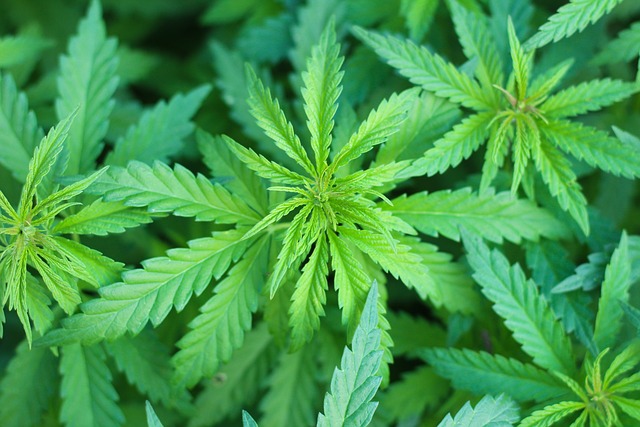
Delta-9 tetrahydrocannabinolic acid (THCA) is a non-psychoactive cannabinoid found in the raw cannabis plant, which, when heated, converts to the well-known psychoactive compound THC. In Oregon, where the cultivation and possession of THCA-rich flower are legal under state law, this cannabinoid has garnered attention for its potential therapeutic properties and distinct effects. The THCA flower, which is typically harvested before the plant has sufficient light to initiate the conversion to THC, contains high levels of THCA as opposed to other cannabinoids like CBD. This composition makes it a subject of interest for those seeking the purported benefits of cannabis without the psychoactive ‘high’ associated with its psychoactive counterpart. The effects attributed to THCA are wide-ranging and include analgesic, anti-inflammatory, and anxiolytic properties, making it a potential aid for pain management, reducing inflammation, and alleviating anxiety, respectively. Users in Oregon who partake in THCA flower often report feeling focused, uplifted, and clear-headed, which is in stark contrast to the relaxation or euphoria typically associated with its decarboxylated form, THC. Additionally, the entourage effect, a phenomenon where cannabinoids are believed to work better together than they do alone, is thought to enhance the therapeutic effects of THCA when it coexists with other cannabinoids and terpenes in the flower. This synergy is one of the reasons why the interest in raw cannabis, including THCA flower, continues to grow in Oregon’s legal cannabis market.
Legal Status of THCA Flower in Oregon: What You Need to Know
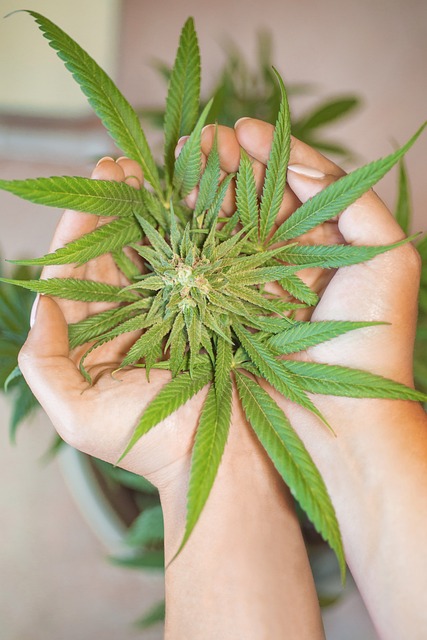
In recent years, the legal status of cannabinoids derived from the cannabis plant has been a subject of significant discussion and legislation across various states in the United States. In Oregon, the conversation centers on THCA flower, which is the raw form of tetrahydrocannabinolic acid, a non-psychoactive precursor to THC found in hemp and marijuana plants. As of the knowledge cutoff date, Oregon’s laws distinguish between hemp-derived products and marijuana, with different regulatory frameworks governing each. THCA flower, derived from hemp, is legal under the 2018 Farm Bill, which federally legalized hemp so long as it contains less than 0.3% THC on a dry weight basis. This has led to a thriving market for THCA flowers in Oregon, where consumers can legally purchase and possess these products. However, it’s crucial to stay informed, as state laws can evolve with new legislation or legal interpretations that could impact the legal status of THCA flower. Retailers and consumers alike must ensure compliance with both state and federal regulations, including understanding the distinctions between hemp-derived and marijuana-derived products. With this in mind, individuals interested in purchasing THCA flower in Oregon should seek out reputable sources that provide lab-tested, compliant products to ensure they are fully within the bounds of the law.
Cultivation of THCA-Rich Flowers: Oregon's Ideal Conditions for Growth
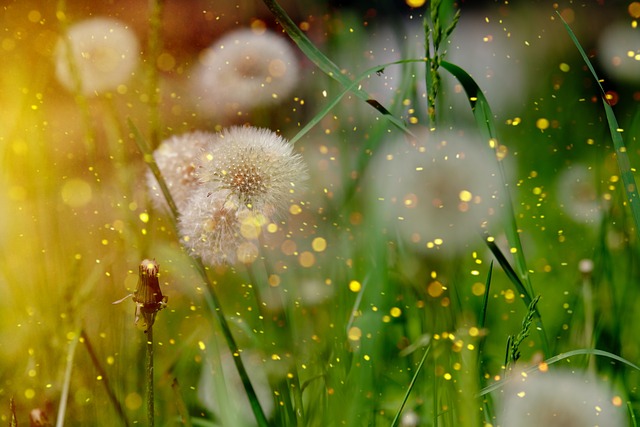
In recent years, the cultivation of THCA-rich flowers has gained significant attention within the horticultural and cannabis communities, particularly in regions that offer optimal growing conditions. Oregon stands out as one of these favorable locales, where the legal landscape for both medical and adult-use cannabis has paved the way for cultivators to experiment with and perfect the growth of THCA-rich varieties. The unique climate of Oregon, characterized by its diverse microclimates, long daylight hours during the summer, and rich soil, provides an ideal environment for the flourishing of these plants. The state’s thca legal status ensures that growers can legally cultivate these flowers, adhering to strict regulations that prioritize sustainability and quality control. This has allowed Oregon to emerge as a leader in producing high-quality, THCA-rich cannabis flowers that are sought after both locally and globally.
The process of cultivating THCA-rich flowers begins with selecting the right genetics and then carefully managing environmental factors such as temperature, humidity, and light exposure to preserve the plant’s natural ability to produce THCA in abundance. Oregon’s cultivators employ specialized techniques, including high-altitude or sea-level greenhouse operations, to enhance the potency of these flowers. The state’s commitment to sustainable agriculture practices further supports the growth of these crops without compromising the environment. As a result, Oregon’s THCA-rich flower market is not only thriving but also setting new standards for excellence in cannabis cultivation.
The Entourage Effect: How THCA Interacts with Other Cannabinoids and Terpenes

Delta-9-tetrahydrocannabinolic acid (THCA) is the non-psychoactive precursor to the well-known psychoactive cannabinoid THC. Found abundantly in raw cannabis and certain legal strains, THCA’s potential within the entourage effect is a subject of growing interest among researchers and enthusiasts alike. The entourage effect refers to the synergistic interaction between cannabinoids and terpenes found in cannabis, which can enhance or alter the effects of each compound when consumed together. In the context of THCA being legal in Oregon, as per state regulations, this phenomenon offers a wide spectrum of therapeutic and experiential benefits. For instance, THCA is believed to possess anti-inflammatory properties and may be beneficial for pain management without the psychoactive effects associated with THC. When THCA interacts with other cannabinoids like CBD and CBN, as well as terpenes like myrcene, limonene, and caryophyllene, it can modulate these effects, potentially providing a more balanced and therapeutic experience for users. These interactions are not only complex but also highly individualized, as each person’s endocannabinoid system responds differently to the unique cannabis blend. The legal status of THCA in Oregon allows for research and exploration into these interactions, contributing valuable insights into the full potential of cannabis as a therapeutic agent. Understanding how THCA fits within the entourage effect is crucial for those looking to harness its benefits while navigating the diverse legal landscape surrounding cannabis use.
Medicinal Benefits of THCA Flower: A Review of Current Research
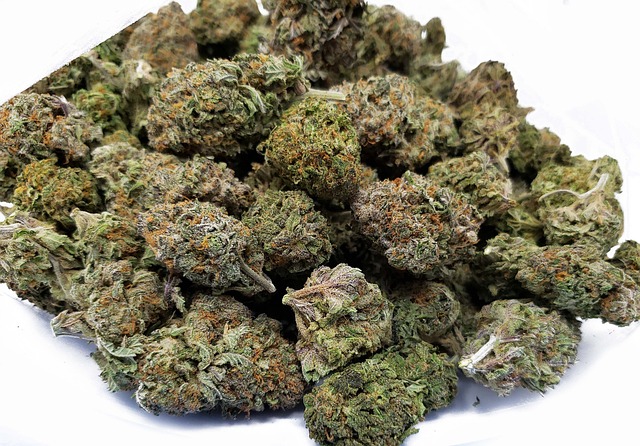
Delta-9-tetrahydrocannabinol (THC) is well-known for its psychoactive properties, but its precursor, tetrahydrocannabinolic acid A (THCA), has been gaining attention due to its potential therapeutic benefits. THCA is the non-psychoactive precursor of THC and is found in raw cannabis plants or in products where decarboxylation has not occurred. Recent research has explored the medicinal properties of THCA, suggesting that it may offer a range of health benefits, including anti-inflammatory, neuroprotective, and anti-nausea effects. Studies have indicated that THCA could be beneficial in managing pain without the psychoactive side effects associated with THC. Additionally, its potential role in reducing anxiety and improving appetite has been a focus of preclinical studies, offering promising avenues for further investigation. In states like Oregon, where the possession and use of cannabis have been legalized under specific conditions, THCA flower is becoming increasingly accessible to consumers seeking alternative wellness solutions. The legality of THCA flower in Oregon allows researchers to study its effects more freely, contributing valuable data to the understanding of its potential health benefits. As interest in cannabinoids grows, so does the need for comprehensive research into the various compounds found within the cannabis plant, with THCA being a focal point due to its medicinal promise and legality in certain regions.
The exploration into the natural precursor of THC, THCA, reveals a compound with unique potential and a composition that offers distinct effects. As highlighted in the article, the emergence of THCA flower as a subject of interest within cultivation circles, particularly in Oregon due to its favorable climate, underscores the importance of understanding its legal status and cultivation requirements. The entourage effect, detailing how THCA interacts with other cannabinoids and terpenes, further elucidates its role within the cannabis plant ecosystem. Moreover, current research indicates that THCA flower may hold promising medicinal benefits, adding to the growing body of knowledge on its applications. For those in Oregon, the legal landscape for THCA flower is clear and inviting, offering an opportunity to engage with this botanical wonder responsibly and effectively. As such, it’s evident that THCA’s role in the cannabis industry is multifaceted and warrants further attention and study.
